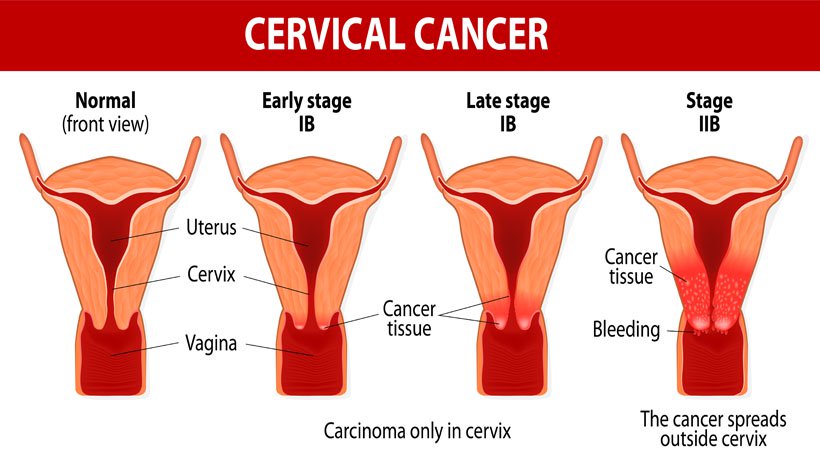Precancerous conditions of the cervix are changes to cervical cells that are going to develop into cancer. Precancerous conditions are not yet cancer, but there is a higher chance these abnormal changes will become cervical cancer if they aren’t treated.
Precancerous conditions of the cervix occur in an place called the transformation zone. This is where one type of lining (glandular, columnar cells) is constantly being changed into another type of lining (squamous cells). The transformation of columnar cells into squamous cells is a normal process, but the effect of human papillomavirus (HPV), it make the call more sensitive.

Infection with the human papillomavirus (HPV) is the main risk factor for precancerous changes in the cervix and cervical cancer.
RISK FACTOR:
- smoking
- having a weakened immune system
- having more than one pregnancy (called multiparty)
- oral contraceptives pills taking for a long time.
SYMPTOMS:
Precancerous changes in the cervix do not show any signs or symptoms. However, sometimes there may be seen spotting or bleeding after sex.
When it’s turns to the severe level, you might feel uncomfortable during the urination, sex would be less enjoyable, irregular menstrual cycle, pelvic pain is another symptom and abnormal vaginal discharge should be taken seriously.
DIAGNOSIS:
If a Pap test results found abnormal, you will have more tests to find out in a gynaecological cancer screening clinic diagnose a precancerous condition or cervical cancer. Tests may include:
- Pap test after a few months (usually 6 months) if there are mild changes
- HPV test
- colposcopy and biopsy
- endocervical curettage
TREATMENT:
Most women overcome from this precancerous conditions and won’t develop cervical cancer after that.
Treatment options (others):
- Loop electrosurgery excision procedure(LEEP) or other CON biopsy procedure
- cryosurgery
- laser surgery
- hysterecotomy
By Harley Street Gynaecology, Private gynaecologist London
